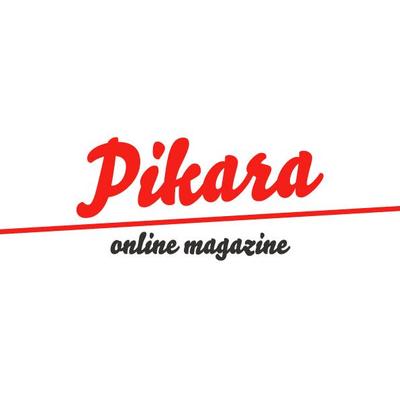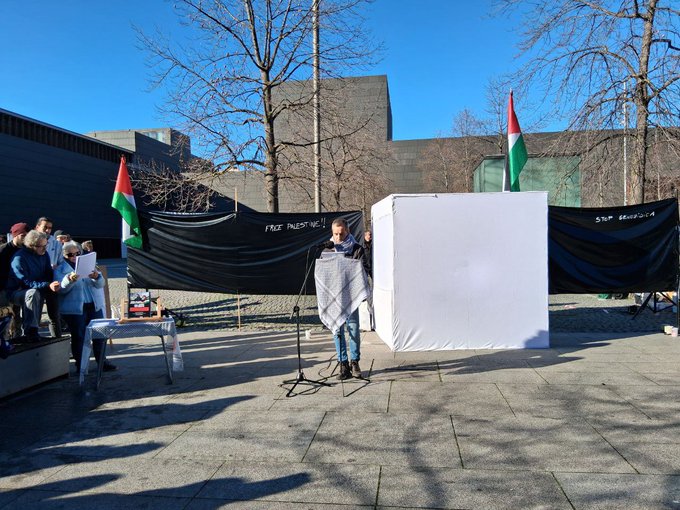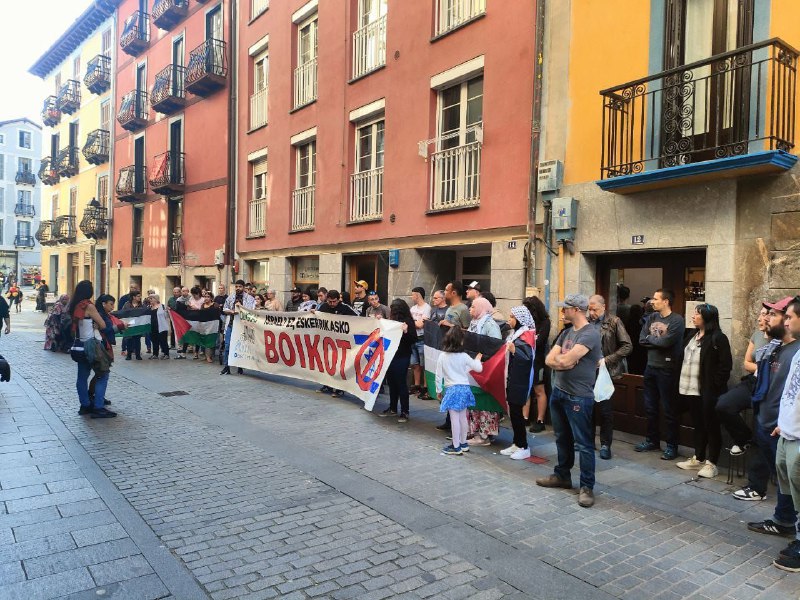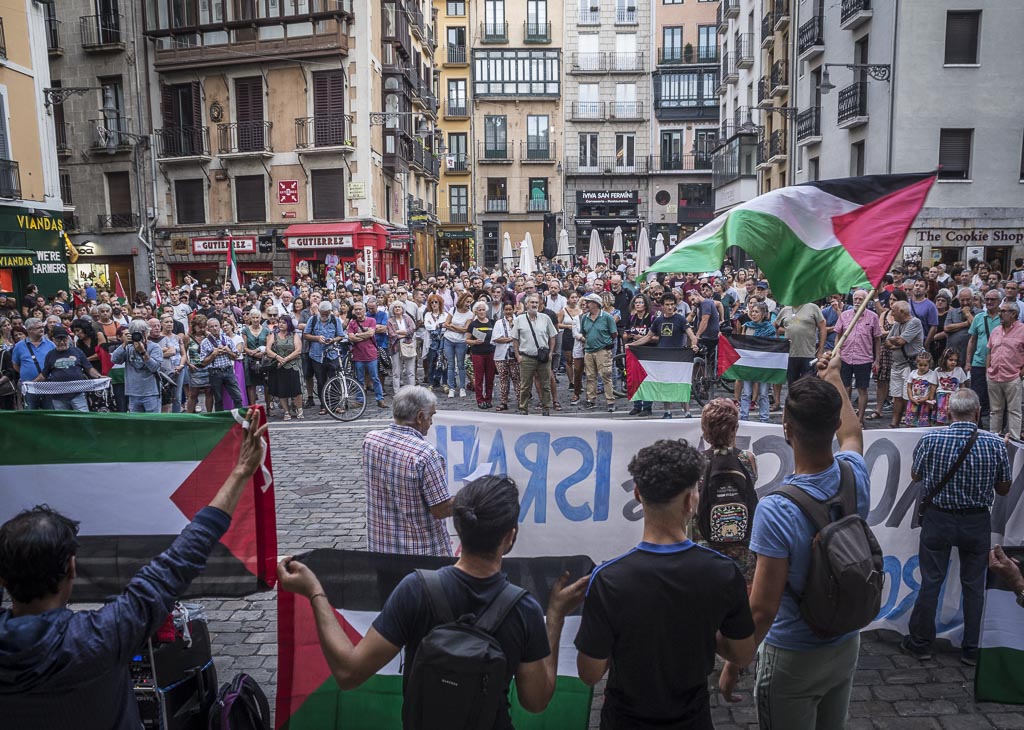Yes, you can do something: boycott Israel
- The Palestinian people told us almost twenty years ago what we can do to stop the genocide and apartheid imposed on it by the State of Israel: to cut off the source of propaganda and money, which is its only true god.
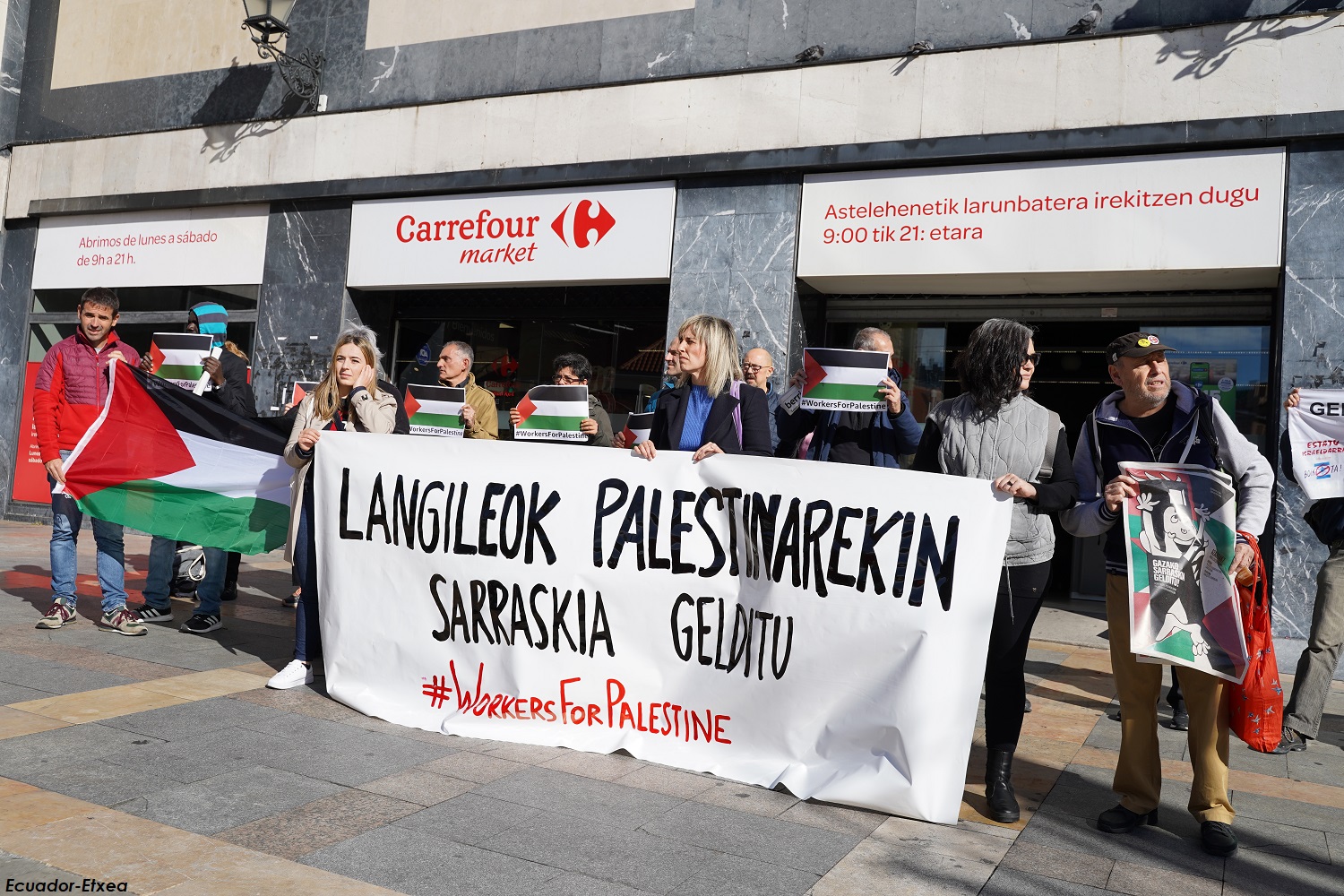
While we are streaming the atrocities that the State of Israel is committing against the Palestinian people, we are paralysed by the inability. After 75 years of occupation and eviction, organised Palestinian civil society asked us on 9 July 2005 to do something possible: Boycott Israel to respect human rights or, at least, to comply with UN orders.
The Palestinian people are proposing to us the Boycott, Divestment and Punishment (BDS) campaign, calling for the dignity of people, institutions and movements that we cannot intervene in international politics, to which we have little left to fill the streets with cries and mobilizations, in the face of the cruelty of Israel and the complicity of the international community, especially the West.
What is BDS?
It is an instrument of struggle for those who have no more power than being organized and consuming (do not start talking about voting, good). It is a measure of economic and political pressure that has historically been used to combat those who have so much power and have the complicity of Governments and international organizations. Against those who have the power of Israel. South Africa also had power until 1994, when the campaign of boycott and isolation of the supremacist regime, promoted by the Anti-Apartheid Movement (WMA), after 35 years, overrides human rights to colonialism and the disregard of ethnic superiority.
The BDS campaign proposes boycotting all “made in Israel” products, including cultural ones. It's about not feeding the genocidal machine that is the state of Israel.
What is it about?
The Boycott, Divestment and Punishment (BDS) campaign aims to boycott all products from Israel, all international companies working with the apartheid regime and the genocide of the Palestinian people, demanding international penalties for the continued violation of human rights and the perpetration of crimes against humanity.
In other words, it is a question of not feeding the genocidal machine which is the state of Israel, nor the official propaganda machine of Israeli culture, nor the machine of looking elsewhere at the affairs of Israel which is an international community.
How did it start and who came up with it?
In 2004, while the West Bank Wall, which is disobeying international law, was being built, a group of university professors and academics convened colleagues from all over the world to interrupt their relations and collaborations with Israeli universities until they ceased to be complicit in occupation and apartheid. A year later, 172 Palestinian civil society organisations published "the call of Palestinian civil society to boycott, divestment and sanctions against Israel, until compliance with international law and universal principles of human rights".
Organised international society understood the opportunity of this proposal, because it already saw that Israel had no intention of complying with the United Nations resolutions, of fulfilling the mandates of the International Criminal Court, or of accepting any authority other than that of the mythological character who pointed to them as "elected people". In addition, the proposal fulfils the fundamental condition of any action that seeks to help a people without falling into colonialism (we fall good in the West): that the demand of the oppressed people is explicit.

Does it really work for something?
Well, look, Israeli Prime Minister Benjamin Netanyahu takes his sleep -- and he doesn't take away the intentional bombing, the only child oncology plant that was still standing in Gaza -- so it's obviously worth it.
If the boycott is massive and long, it will influence the Israeli economy, and it may be that little by little you care less about the divine promise and worry more about staying well with the "customers" of the international market.
In addition, boycott campaigns have led transnational corporations to leave Israel, such as Orange, Veolia or Airbnb. The latter is committed to not renting usurped houses to Palestinians (yes, Israeli settlers throw Palestinians out of their homes, occupy them and then do what they want with them, put them on Airbnb, etc. ).
And who should we boycott?
The BDS campaign proposes boycotting all "made in Israel" products, including cultural ones. To identify the products that can be boycotted in direct consumption, it is best to look at the labelling of the products; if you put the boycott "made in Israel". Companies registered in Israel have a barcode 729, so it is also a reference. Particular attention should be paid to fruits, vegetables and cistern trucks, as Israel is a major producer and exporter. We must pay particular attention to dates, since almost all of them are Israelis.
Detailed lists can be found on the BDS websites and networks, but some companies stand out for their responsibility for apartheid and colonization policies, such as: Eden Springs, which sells stolen water to the inhabitants of the Golan; Pharmacy General Teva, which sells medicine to cure the citizens of Gaza from government bombings; Cosmetics Premier, which steals raw materials in the occupied West Bank; or Epilady, which manufactures optical systems for the Israeli Army, as well as depilation machinery.
The proposal fulfils the fundamental condition of any action that seeks to help a people without falling into colonialism (we fall good in the West): that the demand of the oppressed people is explicit
Besides being an industrial production, Israel is a propaganda factory that uses pop culture and "intellectuality" to try the world to tell its amazing story. That is why we are calling for the boycott of intellectual and cultural production "made in Israel". Israeli universities are deliberately indispensable accomplices of the Israeli regime by creating technology to carry out genocide, but also by building a story that intelligently legitimizes the genocidal plan. Cultural production has built a framework of victimization, supremacism and Islamophobia, painted with pink and rainbow, in which they are led to believe that Israel is a country full of evil happy people: that there is no bullying, no LGTBIQphobia, no machismo, but prisons for children under 14, whenever they are Palestinians. Boycott, if it creates culture and does not clearly criticise apartheid and genocide.
It also calls for a boycott of transnational corporations that, by doing business with the Israeli Government or even by acting in illegally usurped territories of the Palestinian people, support, finance or cover violations of Israel ' s international law.
Are there concrete proposals after 7 October?
To achieve results, international solidarity campaigns must be maintained over time or massive, so the BDS movement proposes to focus the boycott on three international brands to respond to Israel’s genocidal attack from 7 October: Puma, Hewlett Packard (HP) and Carrefour.
Why Puma? Because it is the principal sponsor of the Israeli Football Society (IFA), which includes teams from areas illegally occupied to the Palestinian people, and because it has branches in settlements. At the moment, Liverpool refuses to sign an agreement with him. So, Puma, out.
Why Hewlett Packard (HP)? Because it sells the necessary computer material for the policy of apartheid, and because its technology is at checkpoint, which Palestinians must spend every day to be humiliated, crushed and attacked by them. External HP.
Why Carrefour? Because it has signed an agreement with two Israeli franchises operating in areas illegally occupied by the Palestinian people. And because Israeli troops are giving away food to eat Bio products after the death of innocent civilians trapped in the largest concentration camp in history. Carrefour, out. (McDonald's also gives them food, but the Israeli franchise is not global companies. There is nothing to do with boycotting).
Why Carrefour? Troop because he is giving food to Israelis to eat Bio products after the death of innocent civilians
And at home? International solidarity, like all worthy struggles, must be a global framework, but also a local point of view, so the closest thing is Constructions and Railways Assistant (CAF), based in Beasain (Gipuzkoa). CAF is awarded a railway project connecting West Jerusalem with the illegal settlements in Palestinian territory, thus harnessing apartheid and implementing the colonization project declared illegal by the UN Human Rights Council. Since 7 October they have asked Israeli workers to do telework. We can do few boycotts to them, but we have the possibility of not voting for those who award the contracts.
We must also consider voting in Madrid, because the City Council of Madrid is undoubtedly to be pointed out. He handed over the City Hall’s Medal of Honor to Israel on October 30, under the orders of the lamentable José Luis Martínez-Almeida of the PP, but in 2017 the genocidal state, also lover at that time, received the Golden Key of the city and was delivered by then Mayor Manuela Carmen. Madrid can pay fines.
And what is the fault of the poor people of Israel?
It was the same as the "sick German people" between 1933 and 1945. But with the Internet, social media and a whole planet screaming to stop genocide. The Israeli "settlers" are people who are naively moving to the homes of the Palestinian population and tell them that they have to leave there, explaining that the house is theirs, which has told them a mythological being. And then they laugh, when their government bombs and kills people who lived before.
The Israeli people and organizations opposed to genocide live under constant pressure from their government and the army, but also from their neighbours. Boycotting the culture created in Israel is putting a mirror in front of you to show the consequences of thinking about the only oppression, the only violence, that comes across you. And that the violence experienced gives you the right to everything. And that your life is worth more than others.
Boycott campaigns have led transnational corporations to leave Israel, such as Orange, Veolia or Airbnb
But isn't it anti-Semitism?
No, it's anti-Zionism. The BDS has nothing against the Jewish people, it does not question the genocide they experienced and it does not seek to eliminate the truth, justice, reparation and guarantee of non-repetition. Quite the opposite.
BDS is against the supremacist and genocidal project. The proponents of this project believe that they are an "elected people" and that they have the right to expel from their homes and lands those who were already there, passing over all the UN resolutions, above the International Declaration of Human Rights and even the Geneva Convention, which emerged after the brutalities committed during the Second World War.
So, yes, you can do something from the couch: the boycott of Israel. And ask Israel to immediately withdraw from Eurovision, because they love to cover the blood with purpurpurine.
Amb aquest article, el moviment BDS vol fer un boicot públic a l'acte que se celebrarà el pròxim 24 de setembre en el Guggenheim de Bilbao. En aquesta, comptaran amb la presència del reconegut artista sionista, Noa, que presentarà el seu últim treball discogràfic.
Quan en... [+]
Com altres projectes colonials, Israel té una vocació genocida integrada en el seu ADN. Per a mantenir la injustícia de la seva existència, l'apartheid i la violència extrema són els instruments que utilitza sistemàticament.
El poble palestí, com a poble colonitzat,... [+]
El Tribunal de Justícia Internacional acaba de prendre una decisió històrica en la Convenció sobre el genocidi i ratificar l'acceptabilitat de la denúncia de Sud-àfrica. "Israel ha realitzat accions genocides contra el poble palestí a Gaza, ho està fent i corre el risc de... [+]
Encara que no és fàcil mesurar l'eficàcia de la solidaritat, s'entén amb bastant facilitat que no aconseguirem una mínima solidaritat efectiva si ens limitem a mostrar solidaritat amb el poble palestí davant el que està succeint a Gaza i Cisjordània i a demanar el rebuig i... [+]
No és res nou que les empreses transnacionals vulnerin els drets humans, mediambientals i laborals. Però cada vegada hi ha més demanda social per a controlar a les empreses transnacionals i obligar-los a complir aquests drets. Per això, les empreses han definit estratègies... [+]



